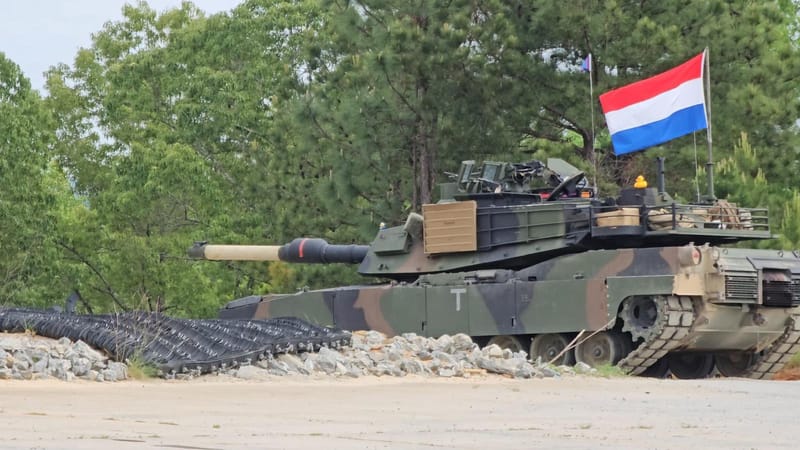Germany’s Defense Projects on Hold Amidst Political Turmoil
As Germany faces a political impasse, crucial defense projects and Ukraine support initiatives are stalled, raising concerns over Bundeswehr modernization and NATO expectations.
Overview: Defense Projects Stalled Amidst Germany’s Political Crisis
The recent breakdown of Germany’s coalition government has led to significant delays in new defense contracts and military modernization efforts, affecting both the Bundeswehr and aid to Ukraine. Amid calls from NATO and the European Union for Germany to increase defense spending, interim government restrictions have blocked the initiation of new projects. Markus Faber, chair of the Bundestag’s Defense Committee, confirmed that while ongoing projects remain active, any new defense contracts are stalled until a new budget is approved. The standoff in Berlin adds uncertainty to Germany’s defense commitments at a time when NATO allies are urging stronger collective security investments.
These disruptions follow recent comments from NATO Secretary-General Mark Rutte, who stressed the need for Germany to boost its defense spending despite increases since the start of the Ukraine conflict. Rutte urged Germany to maintain its momentum in supporting NATO’s security objectives and in providing essential aid to Ukraine.
The Stalemate’s Impact on Bundeswehr Modernization and NATO’s Demands
Delayed Contracts and Strategic Implications
The halted defense budget affects numerous planned acquisitions, including contracts for critical military hardware that the Bundeswehr had scheduled for 2024. Planned procurements totaling €2.5 billion, such as new combat tanks and upgraded armored vehicles, are now on hold. This interruption could stall the Bundeswehr’s broader modernization initiatives, many of which are designed to bring Germany’s defense posture in line with NATO’s interoperability and rapid-response goals.
Markus Faber emphasized that while a special defense fund remains untouched, the absence of an approved budget prevents new expenditures, creating a challenging situation for Germany’s defense readiness. Current programs continue only under “commitment appropriations,” meaning funding has been pledged but depends on future budget approvals. Without expedited budget approval, Germany risks delays in its long-term defense obligations and its ability to meet NATO’s strategic requirements.
Urgent Calls from NATO and EU Leadership
NATO Secretary-General Mark Rutte, during his recent visit to Berlin, met with Chancellor Olaf Scholz and urged Germany to scale up its defense investments. Rutte underscored that Germany’s increased funding since the start of the Ukraine conflict is still inadequate, stressing that all NATO members must heighten their defense capabilities in light of potential threats. Likewise, Andrius Kubilius, the incoming EU Defense Commissioner, echoed these concerns, warning that the EU’s military readiness must be strengthened to prepare for potential Russian aggression.
Both leaders stressed that enhanced funding is essential not only for NATO’s collective security but also for supporting Ukraine amid its ongoing conflict with Russia. The political impasse, however, has stalled additional German funds for Ukrainian military aid, leaving existing production orders as the only immediate channel for continued support.
Internal Political Tensions Over Ukraine Aid and Defense Spending
Clash Within the Coalition Over Defense Expenditures
The coalition’s collapse came after a high-profile dispute over increasing aid to Ukraine. Chancellor Scholz dismissed then-Finance Minister Christian Lindner, a key member of the FDP, who refused to approve additional debt for Ukraine aid. Lindner advocated instead for transferring Taurus missile systems from Bundeswehr reserves to Ukraine, a request Scholz had repeatedly denied. This internal discord highlights the growing pressures within Germany’s political landscape over balancing national defense needs with external security commitments.
The standoff over funding also affects Germany’s broader defense policy. Without a confirmed budget, Germany cannot make new defense-related expenditures, limiting its ability to fund emerging needs or increase Ukrainian aid. However, existing contracts and production lines for ordered materials remain active, ensuring a minimum level of ongoing support.
The Ripple Effect on German Defense Industry and NATO Relations
The defense industry has faced months of uncertainty, with large orders now postponed until a new government budget is ratified. For example, planned defense procurements worth €2.5 billion remain in limbo, disrupting contract schedules with German and European defense suppliers. This uncertainty impacts not only the Bundeswehr’s capability-building but also Germany’s commitments to NATO and EU allies.
NATO leaders are monitoring the political developments closely. Germany’s defense spending, while increased, still falls short of the alliance’s 2% GDP target, an ongoing point of contention among allies. The delays in military modernization, especially given the current geopolitical climate, challenge NATO’s strategic reliance on German defense contributions.
Financial and Strategic Ramifications for Ukraine Aid
Temporary Halt on New Funding for Ukraine Support
Germany’s political gridlock temporarily halts additional funding for Ukraine’s military support, an outcome likely to affect Germany’s role in collective European aid for Ukraine. Markus Faber reassured, however, that already-ordered materials are still in production and will be delivered to Ukraine as scheduled. Furthermore, the European Union has stepped in with a proposed $50 billion aid package, offering Ukraine some financial predictability as Germany works to resolve its internal budgetary challenges.
This gap in funding has raised concerns over Germany’s reliability as a long-term ally for Ukraine. While Germany is currently one of Ukraine’s largest European donors, the delay in additional funds or military hardware like the Taurus missile system reflects internal divides that may have strategic repercussions.
Calls for Early Elections Amid Rising Security Concerns
Given Germany’s domestic and international defense challenges, Defense Committee Chair Markus Faber has called for early elections. Faber noted that the uncertain political landscape, combined with upcoming leadership changes in the United States, demands a “strong and stable Germany” capable of addressing evolving security needs. He emphasized the need for German citizens to have a voice in shaping defense policy direction, urging swift elections to restore stability.
Conclusion: Navigating Germany’s Defense Future Amid Political Uncertainty
Germany’s stalled defense projects come at a critical time, as NATO and the EU urge increased defense commitments amidst heightened security risks. With the coalition government’s collapse, Germany faces months of potential delays in implementing new defense projects, risking gaps in the Bundeswehr’s modernization and in meeting NATO’s 2% GDP spending guideline.
As Germany seeks a resolution, its defense commitments to NATO and Ukraine remain under scrutiny. The potential for early elections and a fresh mandate could pave the way for renewed focus on defense spending and greater cohesion within Germany’s military and foreign policy. Until then, ongoing political uncertainty may delay Germany’s ability to fully engage in NATO’s strategic vision, potentially reshaping European defense priorities in the near future.




